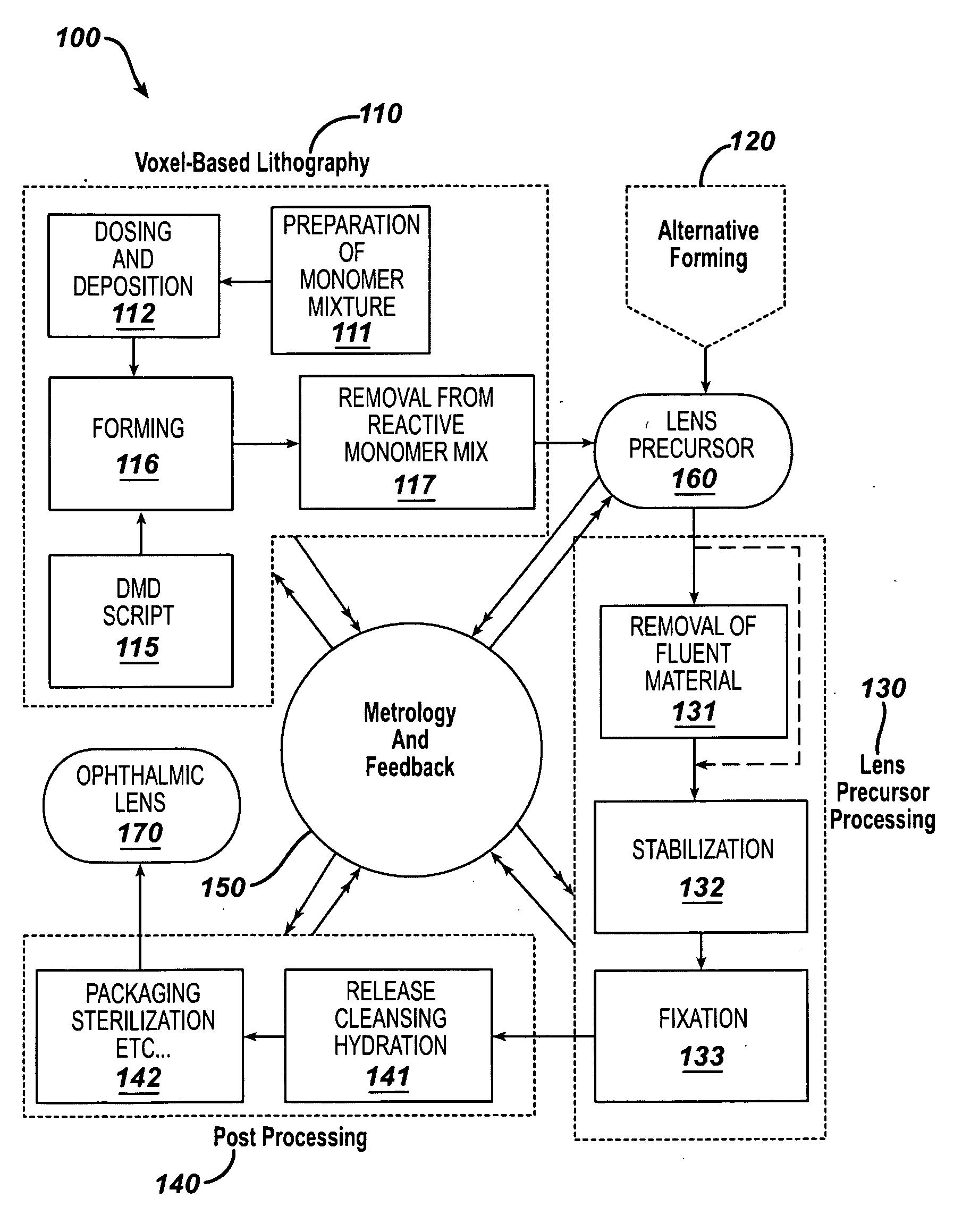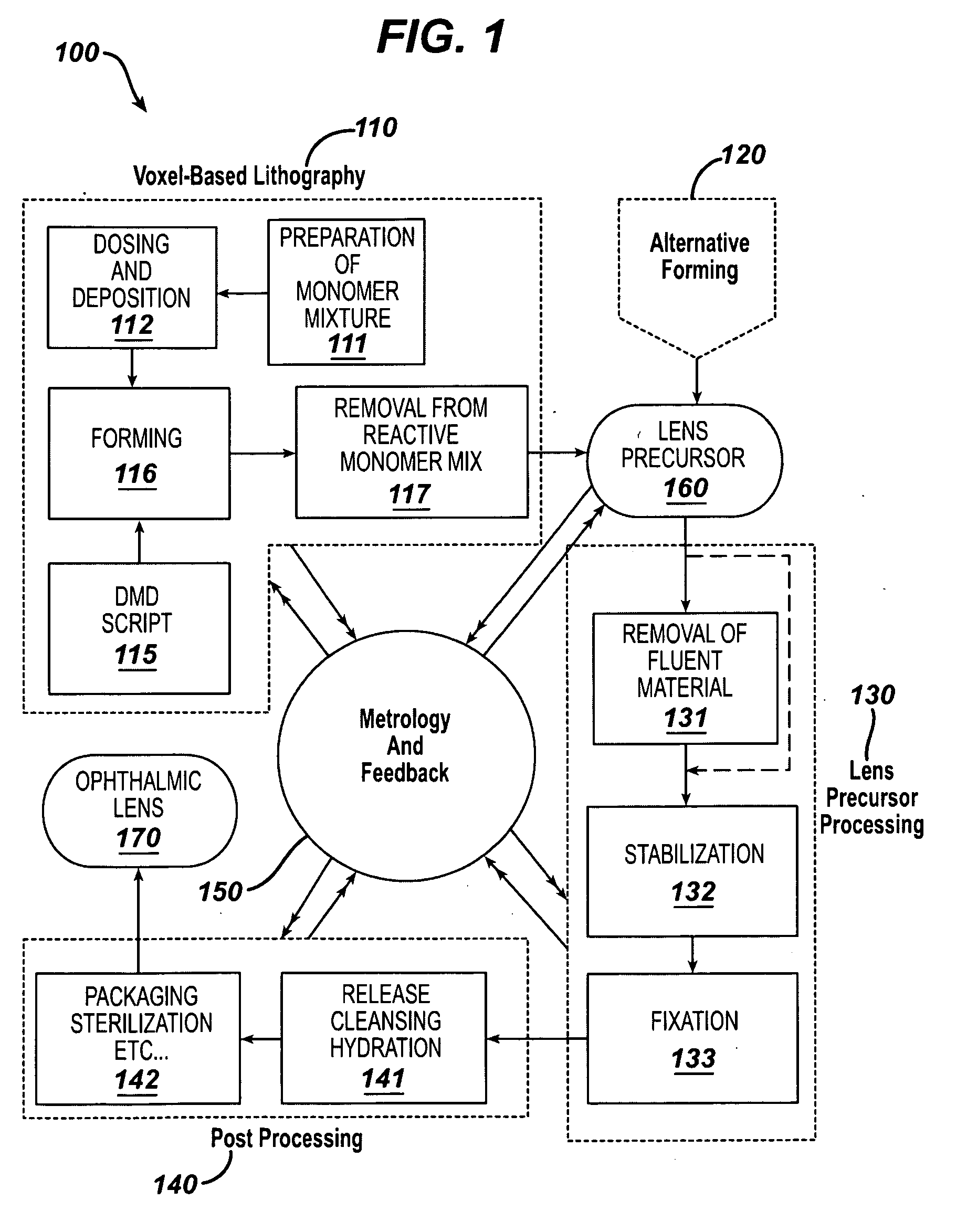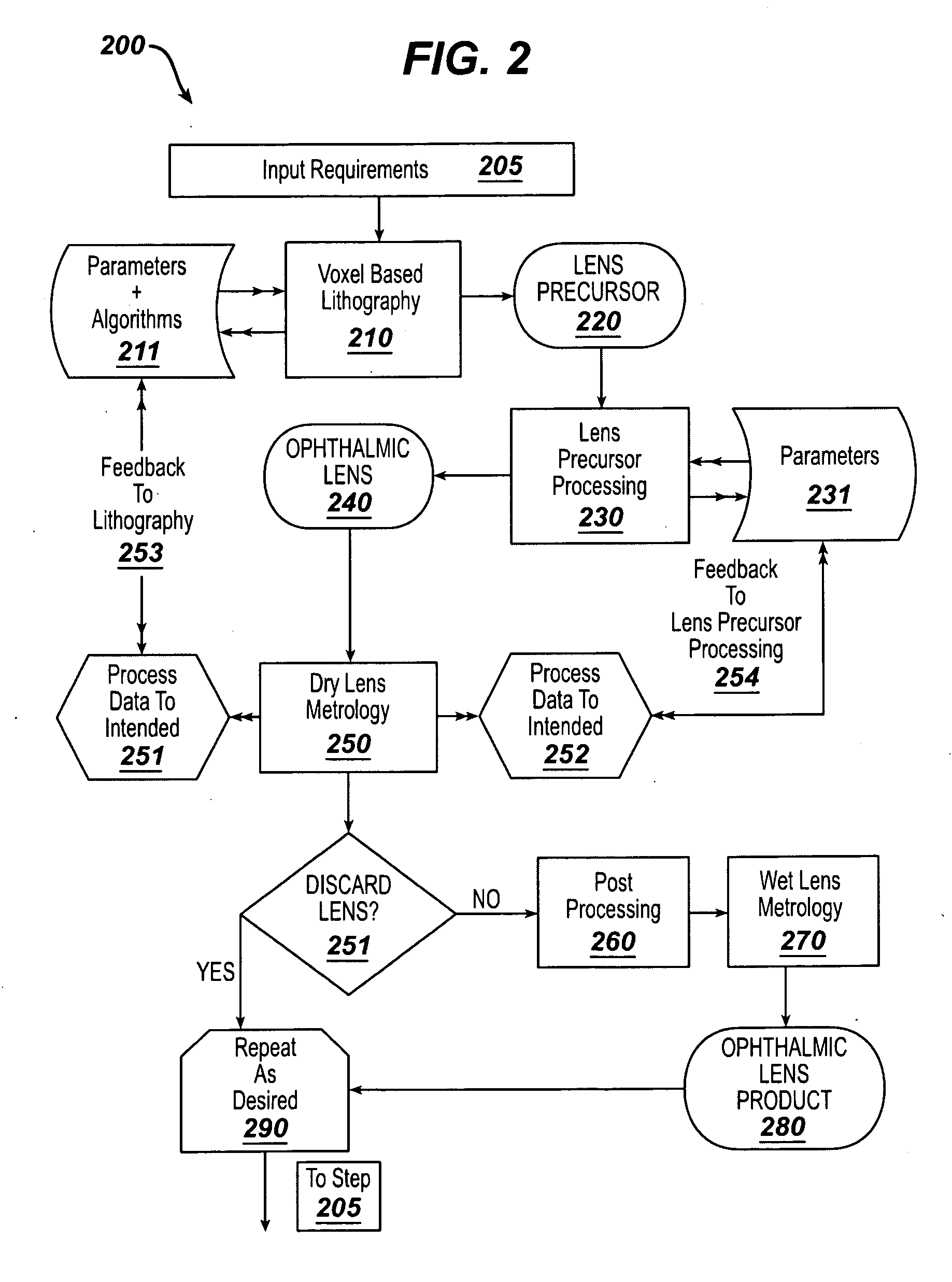Methods for formation of an ophthalmic lens precursor and lens
a technology of precursor and lens, applied in the field of ophthalmic lens fabrication apparatus, can solve the problems of difficult to form custom lenses specific to a particular patient's eye or a particular application, high modulus of lathing, consumption and limited scope, etc., and achieve the effect of high quality
- Summary
- Abstract
- Description
- Claims
- Application Information
AI Technical Summary
Benefits of technology
Problems solved by technology
Method used
Image
Examples
example 1
[0220]Various embodiments of the invention have been practiced and lens products and Lens Precursors of the forms discussed herein have been produced. In this section a discussion of results from one set of embodiments is given as an example.
[0221]The apparatus for performing the results in this example comprised the following general aspects. A Voxel-based lithography optical apparatus was used to form a Lens Precursor. This apparatus, from a general perspective, was comprised with a light source of the preferred embodiment type operating at 365 nm. A homogenizer with an optical pipe and focusing optics, as discussed was used to illuminate the Texas Instruments DLP™ XGA Digital Mirror Device. The imaging system further comprised focusing optics onto a forming optic of the type depicted in FIG. 10.
[0222]The intensity profile and DMD pixel values were calculated based on the optical absorbance and reactivity of the reactive monomer mixture which was comprised of Etafilcon A. This sys...
example 2
[0246]In this section a description of a specific embodiment alternative for a forming optic component 580 is given in FIG. 181800. Again, the forming optic is the support upon which a Lens Precursor or lens may be built. Its depiction as 1000, FIG. 10, may be the most straightforward for this discussion. FIG. 10, in one embodiment described already, may depict a solid optic of substantial mass 1010, with an optical grade surface formed upon it 1011. The alternative embodiment 1800, discussed here replaced the massive element 1010, with a mold piece 1810, that may be much like mold pieces commonly comprising the volume production of standard ophthalmic lenses by current production standards. In such a case the mold piece may have been formed by injection molding to a standard optical form.
[0247]The resulting plastic form could have additional shaping around the optical surface, which is similar to 1011, comprising a well surrounding the optical surface 1860. Additional complexity ma...
PUM
| Property | Measurement | Unit |
|---|---|---|
| transmittance | aaaaa | aaaaa |
| full width at half maximum breadth | aaaaa | aaaaa |
| full width at half maximum breadth | aaaaa | aaaaa |
Abstract
Description
Claims
Application Information
 Login to View More
Login to View More - R&D
- Intellectual Property
- Life Sciences
- Materials
- Tech Scout
- Unparalleled Data Quality
- Higher Quality Content
- 60% Fewer Hallucinations
Browse by: Latest US Patents, China's latest patents, Technical Efficacy Thesaurus, Application Domain, Technology Topic, Popular Technical Reports.
© 2025 PatSnap. All rights reserved.Legal|Privacy policy|Modern Slavery Act Transparency Statement|Sitemap|About US| Contact US: help@patsnap.com



